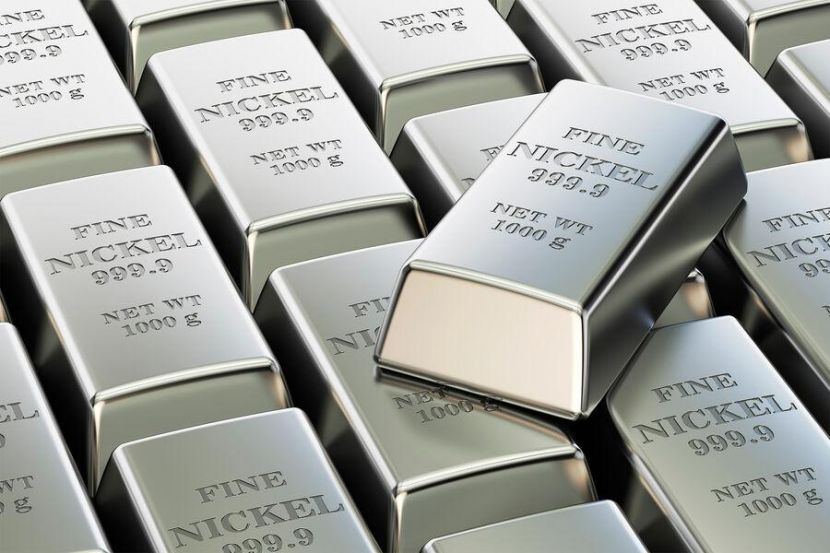
09.12.2024, 19:54
The expert warned about the consequences of the ban on the import of Russian nickel into the EU
Source: OREANDA-NEWS
OREANDA-NEWS Finland may suffer more than other countries from a possible ban on the supply of Russian nickel to the European Union, an independent industrial expert Leonid Khazanov shared this opinion with RIA Novosti.
Finnish Foreign Minister Elina Valtonen said in an interview with Helsingin Sanomat newspaper that her country would support stricter restrictions on imports from Russia if the EU countries jointly decide to do so. According to Valtonen, Finland will not object to the ban on the import of Russian nickel into the EU.
"The European Union's ban on the import of nickel from Russia will result in serious problems for its ferrous metallurgy ... Finland will be particularly hard hit – we can expect massive layoffs of employees in the ferrous metallurgy and related industries, falling taxes and rising social tensions: the Finnish metallurgical industry directly depends on shipments of nickel from Russia (the share of our metal in nickel imports to Finland exceeds 80%)," the expert said about the consequences of this measure.
According to him, an alternative to Russian metal in the form of Indonesian nickel, taking into account distances and transport costs, will cost the EU countries much more. Thus, Khazanov notes that against this background, one can expect an increase in the cost of nickel in the European Union market and a drop in profitability for key stainless steel manufacturers, for example, Spanish Acerinox, Finnish Outokumpu, German ThyssenKrupp, which plans to cut 11 thousand jobs.
"Nickel prices on the world market in the event of an embargo in the European Union may jump by 5%, but for a short time: after all, the European Union is a more modest consumer of this non-ferrous metal than China," he added. On Monday, nickel rose by 0.02% to $ 16,015.5 per ton at 17.13 Moscow time.
For Russian nickel exports, the main focus is not the European Union, but China, Khazanov emphasizes. In his opinion, against the background of Indonesia's reorientation towards the EU, Russia can increase exports of this metal to China.
Earlier, in April, the United States and Great Britain imposed a complete ban on imports of Russian aluminum, copper and nickel, as well as on trading these metals on their exchanges - the Chicago Mercantile Exchange (CME) and the London Metal Exchange (LME). Such restrictions on trading on exchanges do not apply to aluminum, nickel and copper produced before April 13 of this year.
Finnish Foreign Minister Elina Valtonen said in an interview with Helsingin Sanomat newspaper that her country would support stricter restrictions on imports from Russia if the EU countries jointly decide to do so. According to Valtonen, Finland will not object to the ban on the import of Russian nickel into the EU.
"The European Union's ban on the import of nickel from Russia will result in serious problems for its ferrous metallurgy ... Finland will be particularly hard hit – we can expect massive layoffs of employees in the ferrous metallurgy and related industries, falling taxes and rising social tensions: the Finnish metallurgical industry directly depends on shipments of nickel from Russia (the share of our metal in nickel imports to Finland exceeds 80%)," the expert said about the consequences of this measure.
According to him, an alternative to Russian metal in the form of Indonesian nickel, taking into account distances and transport costs, will cost the EU countries much more. Thus, Khazanov notes that against this background, one can expect an increase in the cost of nickel in the European Union market and a drop in profitability for key stainless steel manufacturers, for example, Spanish Acerinox, Finnish Outokumpu, German ThyssenKrupp, which plans to cut 11 thousand jobs.
"Nickel prices on the world market in the event of an embargo in the European Union may jump by 5%, but for a short time: after all, the European Union is a more modest consumer of this non-ferrous metal than China," he added. On Monday, nickel rose by 0.02% to $ 16,015.5 per ton at 17.13 Moscow time.
For Russian nickel exports, the main focus is not the European Union, but China, Khazanov emphasizes. In his opinion, against the background of Indonesia's reorientation towards the EU, Russia can increase exports of this metal to China.
Earlier, in April, the United States and Great Britain imposed a complete ban on imports of Russian aluminum, copper and nickel, as well as on trading these metals on their exchanges - the Chicago Mercantile Exchange (CME) and the London Metal Exchange (LME). Such restrictions on trading on exchanges do not apply to aluminum, nickel and copper produced before April 13 of this year.




Комментарии